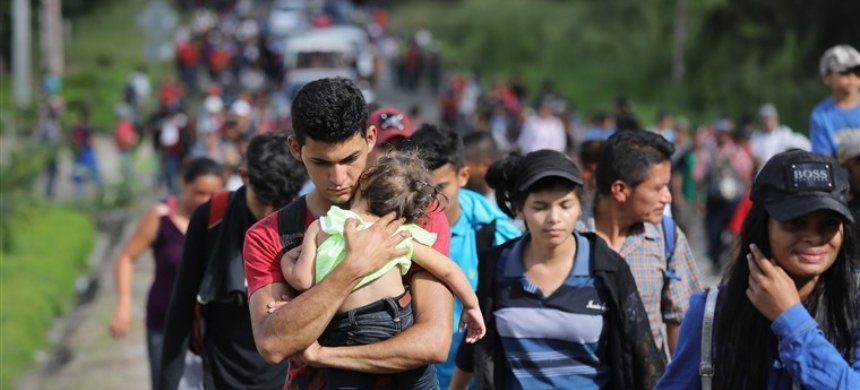It’s not rocket science, it’s political science. Where there is a nation torn by poverty and violence, people flee. When there is even more poverty and violence, even more people leave.
But Donald Trump isn’t experienced in world politics or diplomacy, so perhaps that’s why it was easy for him, without much care, to cut off aid to three Central American countries for failing to stop the flow of migrants toward the United States.
It breaks with years of conventional wisdom in Washington that the best way to halt migration is to attack its root causes.
The decision also runs counter to the approach advocated by President Andrés Manuel López Obrador of Mexico, among others.
López Obrador has been lobbying Washington to join his government in investing billions of dollars in Central America and southern Mexico, arguing that economic development and reducing violence are the most effective ways to encourage Central Americans to remain home.
Cutting off aid is “shooting yourself in the foot,” said Adriana Beltrán, the director of citizen security at the Washington Office on Latin America, a human rights research group that tracks aid closely.
But Trump has become incensed at the growing numbers of families arriving at the southern border asking for asylum.
His administration notified Congress late Friday that it intends to reprogram $450 million in aid to Guatemala, Honduras and El Salvador and has already sent instructions to embassies in the region.
“No money goes there anymore,” he told reporters on Friday. “We’re giving them tremendous aid. We stopped payment.”
While legislators have tools to push back against that decision, it is very possible that some, if not all of that aid, could be suspended for now.
The decision turns American policy in the region on its head.
Not only will it cut development and humanitarian assistance, but it will also halt joint law enforcement efforts, such as anti-gang units vetted by the United States, that had been supported by Republicans and the Trump administration until now, said Juan Gonzalez, a former deputy assistant secretary of state in the Obama administration.
Indeed, just a day before Trump made the comments, the United States signed a border security agreement with the three Central American governments intended to increase cooperation against human trafficking and organized crime.
Gonzalez said the aid withdrawal “undermines our interest,” adding that “we have actually had success against gangs in the United States by cooperating with regional law enforcement. It helped us prevent increased gang flow.”
Trump’s decision also run opposite of what other Republicans, including former Vice President Dan Quayle, have offered as solutions.
“One of the things I have urged throughout my life in politics and speaking on public policy issues is to concentrate on economic development south of the border,” Quayle told Jim Heath in an interview on the border. “Because if you have good jobs, a better quality of life, there will be more of a tendency to stay in your neighborhood.”
{READ: Why Dan Quayle Had It Right On The Border}
Trump’s decision also caught Mexico off guard.
The government there was already rattled on Friday by Mr. Trump’s threat to close parts or all of the border as early as next week in response to the immigration surge and this was an added blow.
Advocates argue that stopping aid will only aggravate the root causes that drive migrants to leave the three countries, where a long history of corrupt governments and rigid inequities perpetuate deep poverty.
Gang violence, drug trafficking, and abusive security forces — some of it the result of American policies in the region that focused on fighting communism in the 1980s and drug trafficking since the 1990s — have led to the highest homicide rates in the world outside of war zones.
The Obama administration ramped up aid after a surge of Central American children arrived at the Texas border in 2014.
Aid to the region doubled in 2016 to about $750 million, according to the Washington Office on Latin America.
Beltrán, a director of the group, said that aid after 2016 not only focused on violence and insecurity but reflected an understanding that “you needed to address the issues of governance and corruption, and you needed to create economic opportunities and build institutions.”
With significant aid reaching the region only in 2017, there has not been much time for it have a strong impact.
